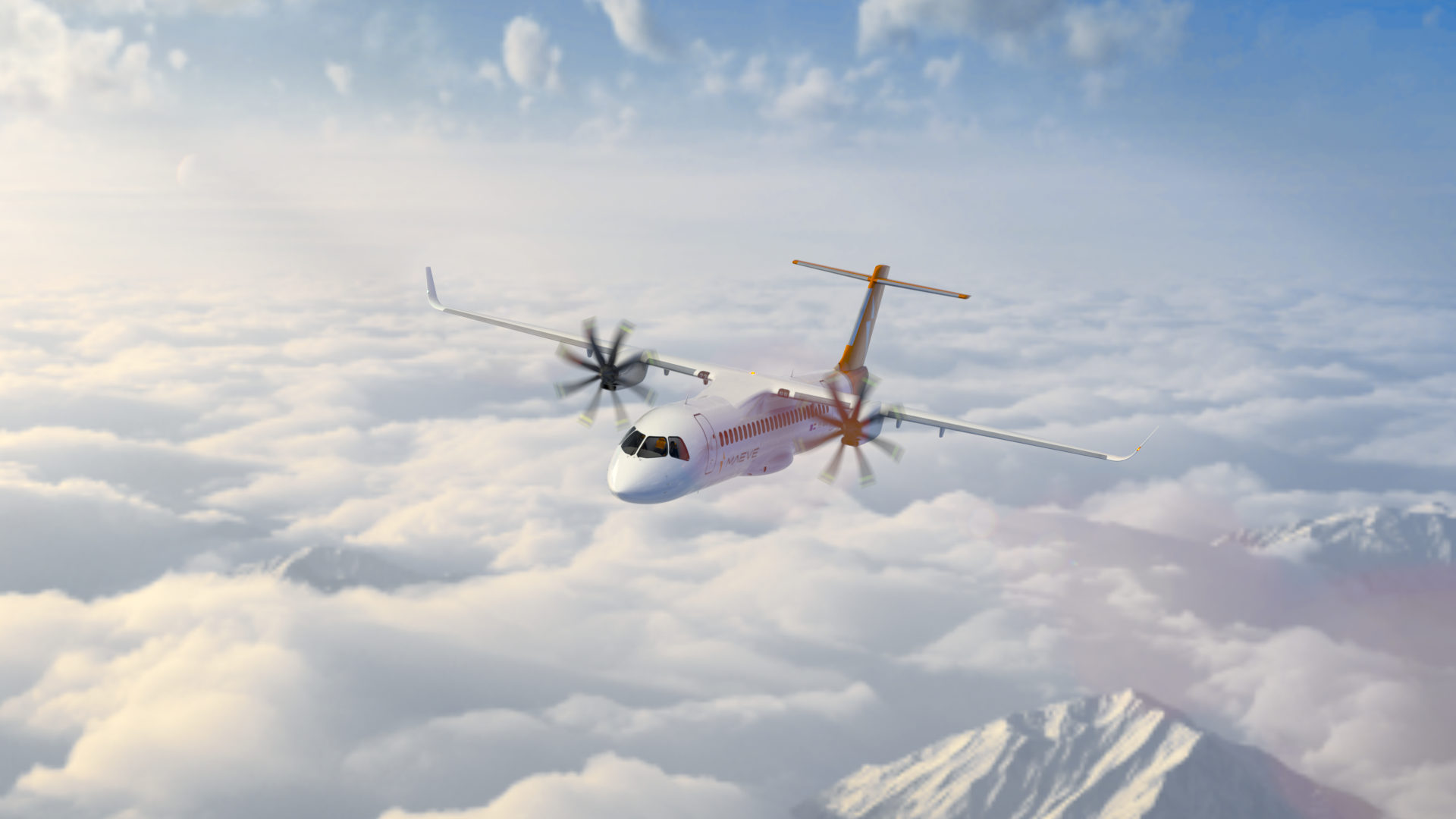Click Here to View This Page on Production Frontend
Click Here to Export Node Content
Click Here to View Printer-Friendly Version (Raw Backend)
Note: front-end display has links to styled print versions.
Content Node ID: 420257
Maeve Aerospace has announced a shift in strategy that will see it develop an 80-seat hybrid-electric regional airliner. The European start-up has abandoned plans it unveiled in April to develop a smaller, all-electric aircraft that would seat up to 44 passengers.
According to the company, it aims to bring the revised M80 design to market in 2031. The aircraft is expected to have a range of 800 nm, which is around three times the range of the all-electric Maeve 01 model. Its cruise speed would be up to 400 knots at 35,000 feet.
Co-founder and CEO Jan Willem Heinen told AIN the change in plans was driven by input from airlines during and after this year's Paris Air Show. Prospective customers told Maeve they needed double the passenger capacity and three times the range to make the switch from current aircraft commercially viable. He said the company concluded that by serving more passengers, the larger aircraft would reduce more carbon dioxide emissions overall.
Maeve is in the process of firming up a partnership to develop the hybrid-electric propulsion system to be developed for the M80. The company’s website shows plans for a pair of turbine engines, plus two electric motors and 10 battery packs.
Heinen said it is in discussions with "one of the big three" aircraft engine manufacturers, implying that prospective partners would likely include GE Aviation, Safran, and Pratt & Whitney. Rolls-Royce might also be in contention, although its plans for hybrid-electric propulsion are now in some doubt following last month's announcement that it is in the process of selling its electrical division.
"The next steps for us are closing the key partnerships and ramping up the team," Heinen told AIN. "We do not want to rush our preliminary design review phase and will take our time establishing exactly the right requirements in 2024.
Maeve will offer the M80 to airlines looking to replace existing turboprop and jet aircraft, with the promise of an average 40 percent reduction in energy consumption and the ability to operate with existing aircraft infrastructure. The company sees the aircraft being able to serve cities across Western and Central Europe, as well as in U.S. regional airline markets.
According to Maeve, the new aircraft will deliver a 25 percent reduction in trip costs compared with current regional jets, and up to 20 percent lower seat-mile costs compared with turboprops of the same size. It says regional aircraft manufacturers ATR and Embraer have no decarbonizing replacement to offer the market, although the latter has announced plans for an Energia family of aircraft that would feature new propulsion systems. Maeve says it expects the M80 to replace airliners such as the Dash 8 Q400 series, the former Bombardier CRJ, and the Mitsubishi Regional Jet.
New Model Awaits Airline Commitments
Back in April, Maeve announced new European airline Fly With Lucy and New Zealand’s Air Napier as launch customers for the all-electric aircraft. It has not confirmed whether these operators, or any other carriers, have yet committed to buying the M80, but Heinen said that "customer feedback has been very encouraging."
The program will be run from the company’s new headquarters at Oberpfaffenhofen Airport near Munich. This follows a decision to relocate from Delft in the Netherlands. The company intends to expand its workforce in 2024 from the current total of 50 employees.
“To my knowledge, there are currently no alternatives in development that are equally sustainable, cost-effective, and match the operational needs of airlines and airports,” said Maeve’s chief technology officer, Martin Nüsseler, who is a former senior engineer with Airbus and Deutsche Aircraft. “If there are, I would applaud them, because we need more realistic solutions to become sustainable.”
Plans for Maeve's all-electric aircraft had assumed it would use batteries developed by U.S.-based Amprius. It said the company would be ready to deliver 500 Wh/kg batteries by the end of this decade.
Maeve is vying for a new market alongside rival new regional airline concepts such as Heart Aerospace's hybrid-electric ES-30. Sweden-based Heart abandoned plans for an all-electric 19-seater after concluding that batteries alone would not support the payload and range sought by airlines. Meanwhile, ZeroAvia and Universal Hydrogen are both working to convert existing regional aircraft to hydrogen propulsion.
According to Heinen, Maeve has raised around €20 million ($21.6 million) to date and expects its Series A funding round to close in the first half of next year. He indicated that the budget for getting the M80 into production could be around €2 billion.
